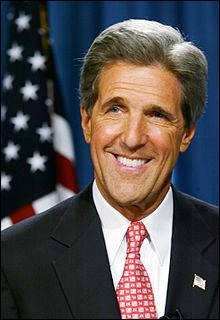
Kentucky Sen. Mitch McConnell (R)
Public Policy Polling, fresh from setting the mark as one of the most accurate pollsters in the 2012 election cycle, went into the field in three key southern states — Kentucky, North Carolina and South Carolina — to project some very early Senatorial numbers. Here’s what they found:
Kentucky
Among the incumbents tested was Minority Leader Mitch McConnell (R-KY), who won his last election (2008) with 53 percent.
Looking ahead to 2012 in the Bluegrass State, the PPP data (Dec. 7-9; 1,299 registered Kentucky voters) produced unusual results. In their analysis, the organization’s president, Tom Jensen, claims that McConnell’s 37:55 percent job approval ratio is the worst of any senator. But, he still leads all hypothetical foes in isolated ballot tests.
The senator tops three well-known Democrats by identical 47-43 percent margins. Two of the three, Attorney General Jack Conway and Lt. Gov. Jerry Abramson, already have said they have no intention of challenging McConnell. The third tested candidate is actress Ashley Judd. She also has made public statements downplaying her desire to run but is the favorite of liberal activists, nonetheless, because many of them want a celebrity challenger to the Republican leader.
The other two Democratic figures who come within single-digits of the senator are Louisville Mayor Greg Fischer (trailing McConnell 41-46 percent) and Secretary of State Alison Lundergan Grimes (behind 40-47 percent).
Though McConnell is not particularly popular in his home state, he remains one of the best campaigners in the Republican stable. Should the Democrats actually convince Judd to run, she might find going against McConnell much more difficult than it appears on paper. It is unlikely that she will run. Right now, the Democrats have no viable option, but expect them to field a credible challenger.
North Carolina
Looking ahead to 2014, first-term North Carolina Sen. Kay Hagan (D) appears to be one of the most vulnerable incumbents facing re-election. Hagan won in the high turnout year of 2008, defeating then-Sen. Elizabeth Dole (R) who made many strategic campaign mistakes and had clearly lost touch with her constituency. In the upcoming mid-term election, considering the assured lower turnout when compared with a presidential year and that the state was one of two (Indiana was the other) that failed to support President Obama in 2012 after doing so in 2008, the stage is already set for a highly competitive Republican challenge race against her.
Looking at the early hypotheticals, Public Policy Polling (Dec. 6-9; 578 registered North Carolina voters) tested several North Carolina Republicans, not including any of the newly elected statewide officials. Among various members of the congressional delegation, Hagan scores in similar territory. Paired with GOP Reps. Renee Ellmers (down 39-45 percent), Virginia Foxx (trailing 39-49 percent), Patrick McHenry (behind 40-48 percent), and just-elected George Holding (Hagan leading 48-39 percent), the senator scores in a consistent range. Her totals suggest vulnerability. Though leading all of the congressmen, she doesn’t break 50 percent against any and, despite none of them having statewide name identification, all are within early striking distance. This will prove to be one of the hardest fought of the 2014 Senate races.
South Carolina
With all the talk surrounding Sen. Jim DeMint’s (R) resignation and potential replacement, less attention is being paid to the state’s senior senator who also must face the voters in 2014. While the conventional wisdom has been that Sen. Lindsey Graham is vulnerable in a South Carolina Republican primary, the new PPP polls paints a completely different picture.
According to the Public Policy Polling Republican primary data (Dec. 7-9; 506 South Carolina Republican voters), Sen. Graham enjoys a 66:26 percent favorable to unfavorable job approval ratio and crushes selected members of the congressional delegation in individual ballot tests.
Of the potential congressional challengers that PPP tabbed, Rep. Tim Scott (R-SC-1) fares the best, but even he trails 32-54 percent. Graham is well above 50 percent against all potential comers, and scores 51-40 percent when asking whether the respondent would favor the senator or another candidate who is more conservative. Continued similar results will soon remove Sen. Graham from the primary vulnerability list.






